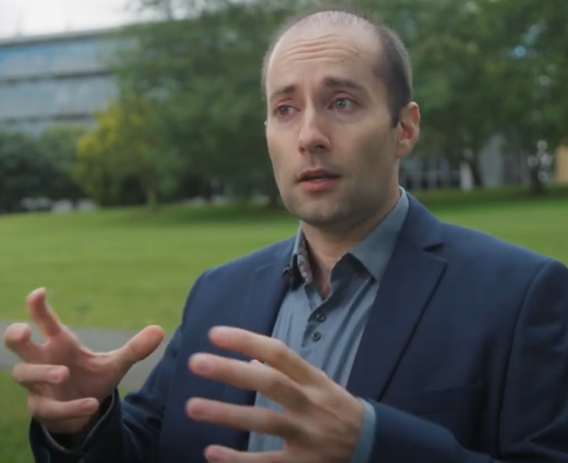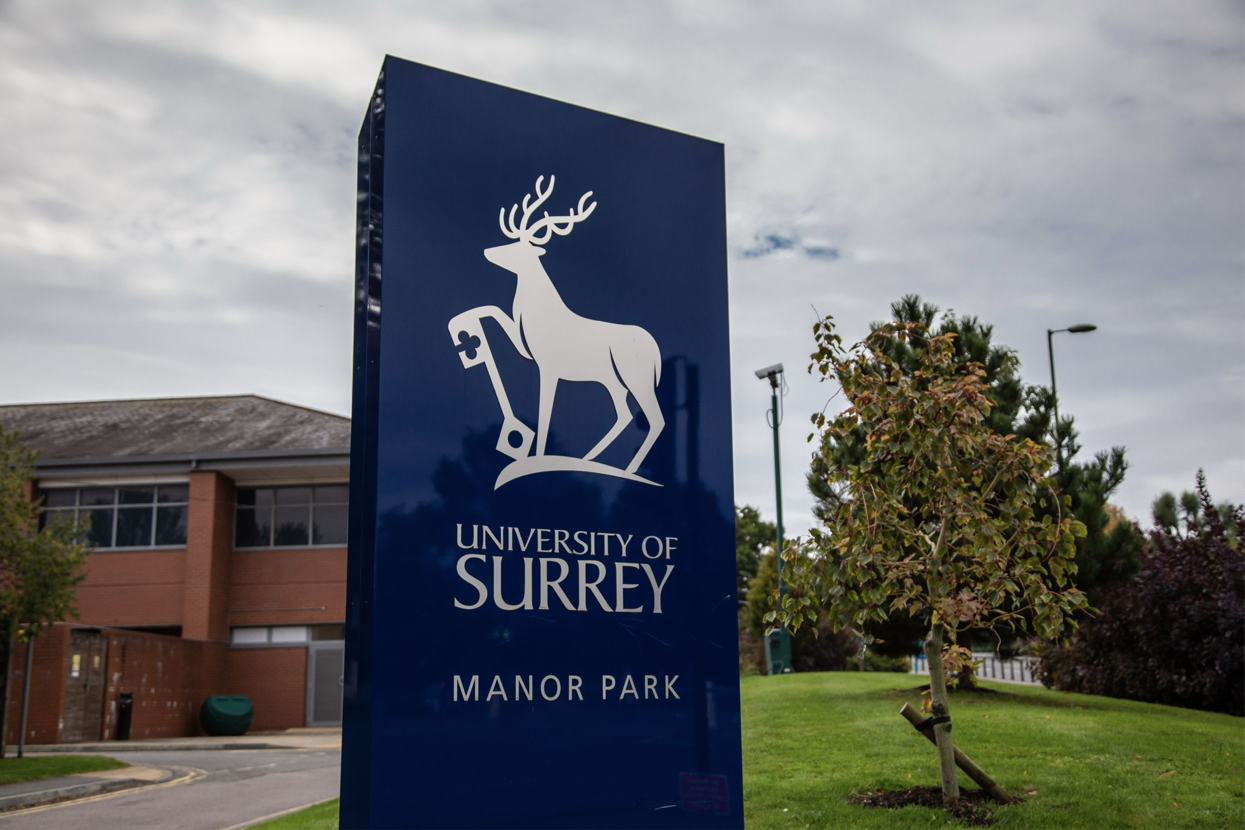Title:
Computational Modelling and Simulation for Biology and Medicine (COMOSIBIME)
Date:
September 19th, 2025 (UTC +1)
Organizer:
University of Surrey (UK)
Symposium Chair:

Dr. Roman Bauer
Personal Bio:
Dr. Roman Bauer is associate professor at the University of Surrey, UK. He received his Bachelor's and Master's Degree in Computational Science and Engineering from ETH Zuerich, Switzerland. Afterwards, he did his doctoral studies at the Institute for Neuroinformatics (ETH Zürich/Uni Zürich). After postdoctoral fellowships at Newcastle University (UK) he moved to the University of Surrey in 2020, where he leads the COMBYNE research lab (www.combynelab.com).
Dr. Roman Bauer conducts research in computational biology and biomedical engineering. His research focuses on developing computational models to better understand complex biological systems, particularly in the areas of neuroscience and oncology. He integrates multi-scale biological data with computational simulations to identify key factors that influence disease progression or treatment efficacy. His interdisciplinary approach bridges gaps between experimental biology and computational science, fostering new avenues for collaboration across disciplines. Notably, he is co-founder and spokesperson of the international BioDynaMo collaboration, which has created the open-source and high-performance agent-based modelling software BioDynaMo (www.biodynamo.org). BioDynaMo has been utilised by many interdisciplinary labs to conduct research as well as to train the next generation of computational biologists
Call for Papers
Background:
Biological systems are usually very complex, due to the entanglement of a multitude of processes on various spatial and temporal scales. With the vast improvements in computational resources, both from a hardware as well as software perspective, it has become possible to advance and accelerate biological and biomedical research. Indeed, computational techniques have become a fundamental pillar of research. Experimental and medical/clinical researchers can effectively work together with computational experts due to the detail and realism of state-of-the-art computational approaches. Along those lines, biological systems such as the brain, the immune system or specific organs can be characterised with ever-growing experimental datasets. Moreover, state-of-the-art AI and bioinformatics tools can be levereraged in combination with data from public databases and large-scale collaborative initiatives.
This symposium will allow researchers who work in computationally-assisted biomedical research to present their work, exchange ideas and ideally foster further collaboration.
Goal/Rationale:
The goal of this research topic is to present, discuss and exchange ideas on bioinformatics and computational approaches for biomedicine, that address important issues in the field. For instance, methods that adress sample inefficiency and limited availability of labelled data. Given the crucial point of explainability and interpretability in biomedical modeling, we would like to study approaches that address current flaws in black-box AI techniques. We would like to achieve a general meeting where an open discussion of current challenges in AI for biomedicine, and existing gaps is encouraged.
A focus of the meeting will be on the presentation of existing bioinformatics platforms and biomedical software that facilitate explainable model generation, comparison and testing. Ideally, these should be available as open-source, and support reproducibility, extendability and collaboration. Ultimately, we would like to see this meeting as a stepping stone for wider, international biomedical collaboration and grant proposals. Moreover, we anticipate that this meeting will promote efficient and facilitating collaboration across disciplines.
Scope and Information for Participants:
The scope of this research topic includes any computational, biomedical engineering and/or bioinformatics methods that are applied to biological or biomedical problems. Such problems should ideally focus on the biophysical and/or genetic processes that are relevant to a given setting, such as for instance cancer, cardiovascular disease, neurodevelopmental conditions, or neurodegenerative disorders. The application can be with regards to fundamental science, to better understand the underlying disease factors, or for computational diagnosis as well as treatment optimisation.
We expect the participants to consider relevance for different research communities, and formulate the research in a language that can be communicated within interdisciplinary settings. If potential participants are unsure about the suitability of their research
Topics:
The main topics of this symposium are listed below.
Biomedical Engineering and Bioinformatics
- Biomedical Text Mining and Ontologies
- Clinical Data Analysis
- Genome-Phenome Analysis
- Pathogen bioinformatics
- Biorobotics and Biomechanics
- Biomedical & Health Informatics
- Translational Engineering for Healthcare Innovation and Commercialization
- Biomedical Intelligence
- Electronic Health Record
- Biomedical Signal/Image Analysis
- Biomarker Discovery
- Biomedical Sensors and Wearable Systems
- Therapeutic & Diagnostic Systems and Technologies
- Biomedical Engineering Education and Society
Meanwhile, submissions aligned with the overall conference theme are also welcome.
Biological Engineering
- Tissue engineering
- Protein Engineering
- Biotechnology
- Computational Proteomics
- Biomechanics
- Bioprocess Engineering
- Recycling Materials
- Genetic engineering
- Neural Engineering
- Biochemical Engineering
- Pharmaceutical Engineering
- Biological Systems Engineering
- Biomimetics
Biological Sciences
- Animal Science
- Bacteriology and Microbiology
- Cell Biology
- Ecology and Biodiversity Conservation
- Molecular Biology
- Plant Biology
- Agriculture and Horticulture
- Biochemistry
- Developmental Biology
- Marine Biology
- Paleontology
- Structural Biology
Basic Science of Medicine
- Anatomy
- Medical Biochemistry
- Human Physiology
- Immunology
- Medical Microbiology
- Radiation Medicine
- Pharmacology
- History of Medicine
- Medical Cell Biology
- Tissue Embryology
- Medical Genetics
- Medical Virology
- Pathology
- Medical Statistics
Clinical and Public Health
- Internal Medicine
- Anesthesiology
- Dermatology
- Pediatrics
- Ophthalmology
- Radiology
- Hematology
- Occupational Medicine
- Nutrition, Healthy Diet, and Dietary Balance
- Food Safety
- General Surgery
- Otorhinolaryngology
- Epidemiology
- Neurosurgery
- Oral and Maxillofacial Surgery
- Urology
- Physical Medicine and Rehabilitation
- Disease Control
- Health Care
- Sports Medicine
- Health and Sport Science
Submission:
Prospective authors are kindly invited to submit full papers that include title, abstract, introduction, tables, figures, conclusion and references. It is unnecessary to submit an abstract in advance. Please submit your papers in English.
Each paper should be no less than 4 pages. One regular registration can cover a paper of 6 pages, and additional pages will be charged. Please format your paper well according to the conference template before submission. Paper Template Download
Please prepare your paper in both .doc/.docx and .pdf format and submit your full paper by email with both formats attached directly to sympo_london@icbiomed.org
Important Dates:
| Process Date & Time | Date & Time |
|---|---|
| Submission Deadline | September 12, 2025 |
| Symposium Date | September 19, 2025 |
| Notification of Acceptance | 7-20 workdays |
Publication:
Accepted papers of the symposium will be published in Theoretical and Natural Science (TNS) (Print ISSN 2753-8818), and will be submitted to Conference Proceedings Citation Index (CPCI), Crossref, CNKI, Portico, Engineering Village (Inspec), Google Scholar and other databases for indexing. The situation may be affected by factors among databases like processing time, workflow, policy, etc.
Publication info
Title: Theoretical and Natural Science (TNS)
Press: EWA Publishing, United Kingdom
ISSN: 2753-8818, 2753-8826 (electronic)
This symposium is organized by ICBioMed 2025 and it will independently proceed the submission and publication process.
* The papers will be exported to production and publication on a regular basis. Early-registered papers are expected to be published online earlier.
Ways to Participate
Venue:
Surrey Space Center, University of Surrey
Attend in Person:
If you want to attend the symposium on-site, please email sympo_london@icbiomed.org. The symposium seats are limited. Both contributors and non-contributors who wish to participate in the symposium in person need to apply to the symposium organizers.
VISA:
Welcome to GOV.UKIn order to ensure the information is correct and up to date, there may be changes which we are not aware of. And different countries have different rules for the visa application. It is always a good idea to check the latest regulations in your country. This page just gives some general information of the visa application.
UK Visa Information
What you need to do
- Check if what you plan to do in the UK is allowed as a Standard Visitor.
- Check you meet the eligibility requirements.
- Check if you need to apply for a visa to visit the UK.
- Apply for a Standard Visitor visa online - if you need one.
Check you meet the eligibility requirements
You must have a passport or travel document to enter the UK. It should be valid for the whole of your stay.
You must be able to show that:
- you'll leave the UK at the end of your visit
- you're able to support yourself and your dependants during your trip (or have funding from someone else to support you)
- you're able to pay for your return or onward journey (or have funding from someone else to pay for the journey)
- you'll not live in the UK for extended periods through frequent or successive visits, or make the UK your main home
Check if you need a visa to visit the UK
Depending on your nationality, you'll either:
- have to apply for a Standard Visitor visa before you travel to the UK
- be able to visit the UK for up to 6 months without needing a visa
You can check if you need a visa before you apply.
If you do not need a visa, you must still meet the Standard Visitor eligibility requirements to visit the UK. You may be asked questions at the UK border about your eligibility and the activities you plan to do.
